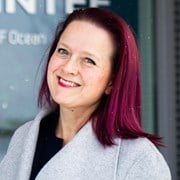The REGIMES project draws on the foremost marine climate modellers from the William Cheung lab at the University of British Columbia in Vancouver, Canada to create future climate scenarios of the Arctic Ocean. The REGIMES team further builds on these models through expert knowledge on various ecosystem services, as well as stakeholder dialogues to explore changes on the perceived vulnerability and adaptability at sector and society levels under different climate scenarios.
Our focus is through the geographical, ecological, social, economic and political lens of the Svalbard Fisheries Protection Zone (SFPZ), where we expect future climate changes will have great impact. The zone was created in 1976 and Norway has taken a proactive role in institutionalizing its management claim by maintaining a strong Coast Guard presence and imposing Norwegian environmental regulations in the zone. Despite this, the status of the SFPZ has remained disputed by most nations.
Stakeholder groups in workshops will discuss how the ecosystem service scenarios may affect them in terms of challenges, opportunities and adaptability. The REGIMES team will then assess stakeholders' adaptive capacities and vulnerabilities by combining the environmental modeling results with stakeholder perception scenarios and models of sustainable future management of the SFPZ.
The REGIMES project also focuses on a 3-year iterative dialogue with students at the prestigious Amalie Skram Videregående Skole in Bergen. This collaboration will test a digital role-playing game that will be used intra- and inter-generationally to elucidate new narratives of climate adaptation.

